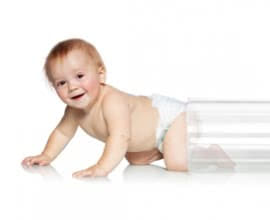The Future of IVF
A brief look at some of the questions being asked, debates being had, and technological advancements being made that are likely to dominate the IVF narrative over the coming decades.
Following the birth of Louise Brown, the first IVF-born child in 1978, James Watson, one of the discoverers the structure of DNA warned of the dangers of continuing the development of IVF, stating ''all hell will break loose, politically and morally, all over the world''. Contrary to his predictions however, it has continued to develop without much public or moral debate until now.
Despite having not progressed on any 'revolutionary' scale since it's conception, developments in IVF technology are starting to build momentum. This will inevitably begin to regenerate moral questions over certain IVF techniques and indeed the very principle itself.
Recently the method of freezing eggs has made a huge strides. By freezing the eggs very quickly, doctors have been able to prevent eggs (heavily water-based) forming crystals, and thus damaging their effectiveness. Arguably societal trends, such as women wanting babies later in life (a contributing factor it is often suggested, to the much cited statistic that one in six couples now have fertility issues) have driven these developments. What could be an increasingly sought after trend in the future, is young women having their eggs frozen, so that as they grow older and their chances of infertility decrease, they will be able to use their own youthfully preserved eggs. As Prof Charles Kingsland suggests, ''maybe one day evolution will occur so that women will naturally be able to have babies at an older age, but at present, biology hasn't caught up with society''. This will begin to raise questions over whether it is right to get older women pregnant, and now that we can, should we?
One of the driving questions behind much of IVF's recent and future development is how to increase its effectiveness. Success rates for assisted fertility hover somewhere between 40-60% depending on the country, the type of treatment, and what sources you get your information from. Science currently is and will continue to be turning it's attentions on how to increase those percentages. Pre-implantation genetic screening (PGD, PGS) is one way which is seen by scientists as a chance to increase efficiency. Scientists know that having the right number of chromosomes is the biggest factor in successful embryo transfer, so with developments in genome sequencing technology being made, success rates are likely to rise in the near future.

Central to the debates concerning the future of IVF over recent years has been the development of three-parent IVF which relies on similar scientific techniques. This morally contentious form of assisted fertility aims at removing the chances of babies being born with genetic mitochondrial diseases. The procedure was approved in the UK in 2013, but is still facing resistance in the US, having not yet gained the FDA (Food and Drug Administration)'s approval. Critics of this procedure see it's development as a 'slippery slope' for the future of IVF. The question is asked- if parents are already aborting pregnancies to avoid certain deficiencies, how many will resist the temptation to implant only the embryo with the best genome? Will scientists go on to discover the genes that contribute to intelligence and athletic ability, and be able to alter these? Some argue it could be the beginning of 'designer babies'- a thought which sounds alarmingly like the concept explored in the 1997 'sci-fi' film Gattaca.
Regardless of moral standpoints, what all scientist agree on is that these are questions that need to be discussed. As Dr Allan Pacey states, its important that we evaluate all the possibilities and drawbacks now, as we'll be ready to make it work when the science comes. But it's not just for scientists and philosophers to debate. People from medicine, law and media, patients, professionals and academics, should all be involved in the discussion.
SOURCES:
http://www.forbes.com/sites/davidsable/2015/02/28/the-seven-trends-that-define-the-future-of-ivf/
http://www.bbc.com/news/health-23181620
http://www.livescience.com/46578-future-fertility-treatments.html
http://www.theatlantic.com/magazine/archive/2014/06/making-babies/361630/














